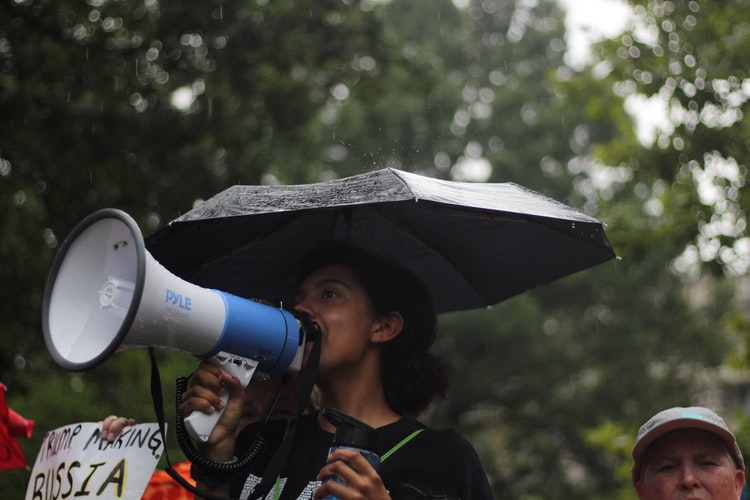To put it in layman’s terms, human rights are basic rights that are inherent rights that we must be entitled to because we are born as humans. These rights are inherent and are must not change, regardless of our sex, gender, nationality, race, class, language, or anything else. But, one must be living in a utopian world to think that this is actually taken into practice.
The existence of slavery, human trafficking, child marriage, domestic violence, and more are proof that there is a discrepancy in our privileges. Basic human rights are still a privilege for many, which should not be the case.
Let’s look at some of the human rights activists and their stories:
Melanie Campbell:
She is the Executive Director and CEO of the National Coalition on Black Civic Participation, located in Washington, D.C. She was recognised as one of Washington D.C.’s Top 40 Under 40 Emerging Leaders in 2000. She has worked dedicatedly for the Civil Rights, Women’s Rights, and Social Justice Movement for more than two decades. Campbell has helped create a youth-focused leadership development program, Black Youth Vote! She has focussed and led a lot of youth-centric voting engagement programmes. Campbell is the convener of the Black Women’s Roundtable. It is one of the largest women-centric network communities that look at the betterment of black women and their families and more.
Erika Andiola:
She is a prominent immigration rights activist from Arizona. Andiola appeared on the cover of Time magazine with 35 other immigrants living in the U.S. without authorization in 2012. She is the Chief Advocacy Officer for Refugee and Immigrant Center for Education and Legal Services. Her struggle as an undocumented individual with an undocumented family has given her the much-needed empathy, passion, and understanding of immigration. She is the former Press Secretary for Latino Outreach for Bernie 2016. She has been in the political arena and has time and again raised her voice and raised questions about issues pertaining to human rights and immigration specifically.
Patrisse Cullors:
She is the co-founder of the infamous #BlackLivesMatter. The #BlackLivesMatter social media campaign she helped stimulate has its roots back to 2012. The movement and hashtag became the protestor’s chant post the killing of George Floyd in 2020. She also dwells upon and has been an active supporter of the LGBTQIA+ community and has time and again advocated prison abolition in Los Angeles. Cullors was one of the people mentioned in the BBC’s 100 Women on 23 November 2020. Her form of activism is very actively accompanied by critical theories. She blends academia and academic circles well in the social movements she encompasses her journey in. She understands the power of social media and credits it for the changes in dialogues that it has helped to create.
Chad Griffin:
He headed one of the most established LGBTQ advocacy groups of the USA, the Human Rights Campaign(HRC). During Griffin’s tenure, HRC led a lot of initiatives across different areas concerning equality. He has been in the political sphere since the age of 19 and has shown an active interest in issues concerning human rights. He has time and again mentioned the high suicide rates of gay teens and has mentioned that to be one of the leading motivational factors for him.
Bryan Stevenson
He is the founder and executive director of the Equal Justice Initiative (EJI), a human rights organisation. He is an activist that strongly works on prison reforms. He has initiated major new anti-poverty and anti-discrimination efforts that challenge inequality in America. He has received over 40 honorary doctoral degrees from various prestigious institutions including Harvard, Yale, Princeton, and more. Under him, EJI won a historic ruling in the US Supreme Court making mandatory life-without-parole sentences for all children 17 or younger unconstitutional. He has been recognised by several organisations for his work revolving around the criminal justice system and the discrimination within it.

